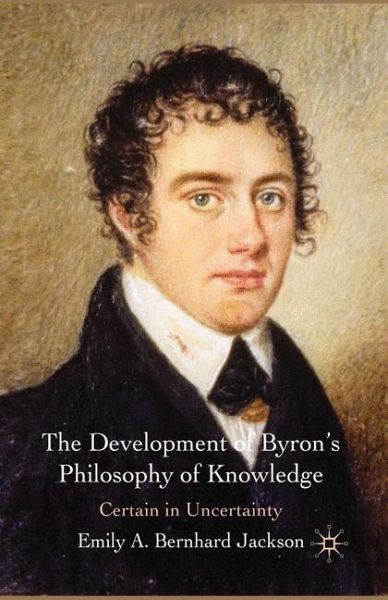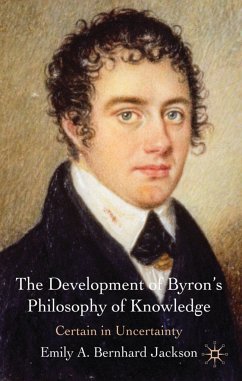
The Development of Byron's Philosophy of Knowledge
Certain in Uncertainty
Versandkostenfrei!
Versandfertig in 6-10 Tagen
38,99 €
inkl. MwSt.
Weitere Ausgaben:

PAYBACK Punkte
19 °P sammeln!
Taking a fresh approach to Byron, this book argues that he should be understood as a poet whose major works develop a carefully reasoned philosophy. Situating him with reference to the thought of the period, it argues for Byron as an active thinker, whose final philosophical stance - reader-centred scepticism - has extensive practical implications.












